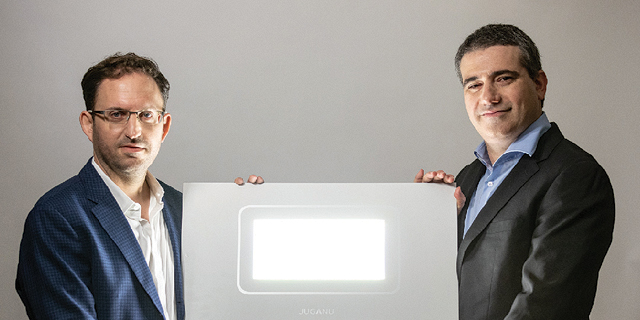
Juganu Wants to Light the Way Forward in the Digital Revolution
With investments from telecom giants Comcast Ventures and Amdocs, Israeli startup Juganu is aiming to revolutionize light and connectivity through an innovative solution
Allon Sinai | 08:25, 07.05.20
What have telecom giants the likes of Comcast Ventures and Amdocs Inc., and semiconductor powerhouse Qualcomm got to do with a company offering lighting solutions?
Well, quite a bit if that company happens to be Juganu Ltd. The Israeli lighting startup is aiming to revolutionize light and connectivity through an innovative solution and has so far raised $41 million, including $18 million in a funding round last month led by San Francisco-based VC Comcast Ventures, with participation from existing investors Viola Growth and Nasdaq-listed Amdocs.
By combining breakthrough LED technology, artificial intelligence, and edge computing, Juganu is making smart cities a reality across the world, realizing a vision dreamed up by co-founders Eran Ben-Shmuel and Alex Bilchinsky a decade ago.
"We certainly see ourselves as a company that enables this dream of digital connection which is shared by businesses, municipalities, and people who want to be online," Ben-Shmuel, who is the company's CEO, told CTech earlier this week. "I think people need to understand that there are many positives to this technology if you set it up properly the way we are trying to do. We are trying to be as responsible as possible when it comes to privacy and people should also remember that this product dramatically drops radiation from your cellphone as you are connecting online via a nearby light rather than a distant antenna."
What Juganu essentially does is install proprietary street lights with full wireless broadband capabilities and cameras, with the LED lights also being fully controllable and adjustable at all times, maximizing energy efficiency and lighting stability. The platform offers an all-in-one solution to manage facial recognition, license plate recognition, suspect tracking, and hazard and distress detection, which it is all currently doing at one of the busiest borders in the world.
"Our system is currently being used along the border between Brazil and Paraguay. It provides a complete solution for Brazil's Federal Police. It includes face recognition, Wi-Fi, license plate recognition, and more," explained Ben-Shmuel. "This system essentially controls one of the toughest borders in the world. There are around 100,000 people crossing between the countries every day, as well as 40,000 vehicles. But even with such complexity, it took just two days to install our system. The big disruption we are causing is that we significantly dropped the capex (capital expenditure). With our technology, the capex is 10 percent of what it previously was. When you drop the cost by 90 percent you are giving many additional people the possibility to acquire this digital platform."
Juganu, whose solution is also installed in several cities in Israel, including Jerusalem, charges clients per usage, allowing customers to add additional applications per request. "You only pay for what you use. So for example now with the arrival of coronavirus (Covid-19) if you already had our platform installed it is almost trivial to add features to track social distancing or temperature measurement," said Ben-Shmuel.
The coronavirus pandemic has created significant opportunities for Juganu. "I think that the necessity for companies to use digital tools has increased significantly since the arrival of Covid-19," Ben-Shmuel noted. "If businesses want to operate these days they need to have far more control. That luxury they once had of not moving with the times is over. Those businesses who refused to upgrade are now left behind."
Ben-Shmuel says he and Bilchinsky, who founded their company in 2011, always understood that the lighting infrastructure is not only useful as an electric point but also as a grid to build on. "The lighting grid is the most comprehensive and organized grid in the city," he explained. "This makes it very useful in relaying information and it was obvious to us that we would use this as our foundation. It was a very complicated challenge to come up with a solution to wirelessly transfer significant amounts of data but we created the necessary technology.
"Our vision always included both wireless control and lighting. We looked a little ridiculous a few years ago because people weren't even talking about controlling the lighting then, not to mention the rest," Ben-Shmuel added. "But these days there is almost no lighting bid that doesn't include command and control of lighting, which is something we came up with long ago. We have plenty of experience in that and now with the arrival of high bandwidth we can also transfer massive amounts of data which was something that was always part of our initial vision."
Ben-Shmuel believes Juganu is a company that gives people real value, benefitting not only clients like municipalities and malls but also the general public. "We protect privacy and improve connectivity to applications that can really help people," he said. "We see ourselves as a company that will lead this era of digitization. We are happy Comcast uses our technology and that many other companies understand the benefit we provide."

